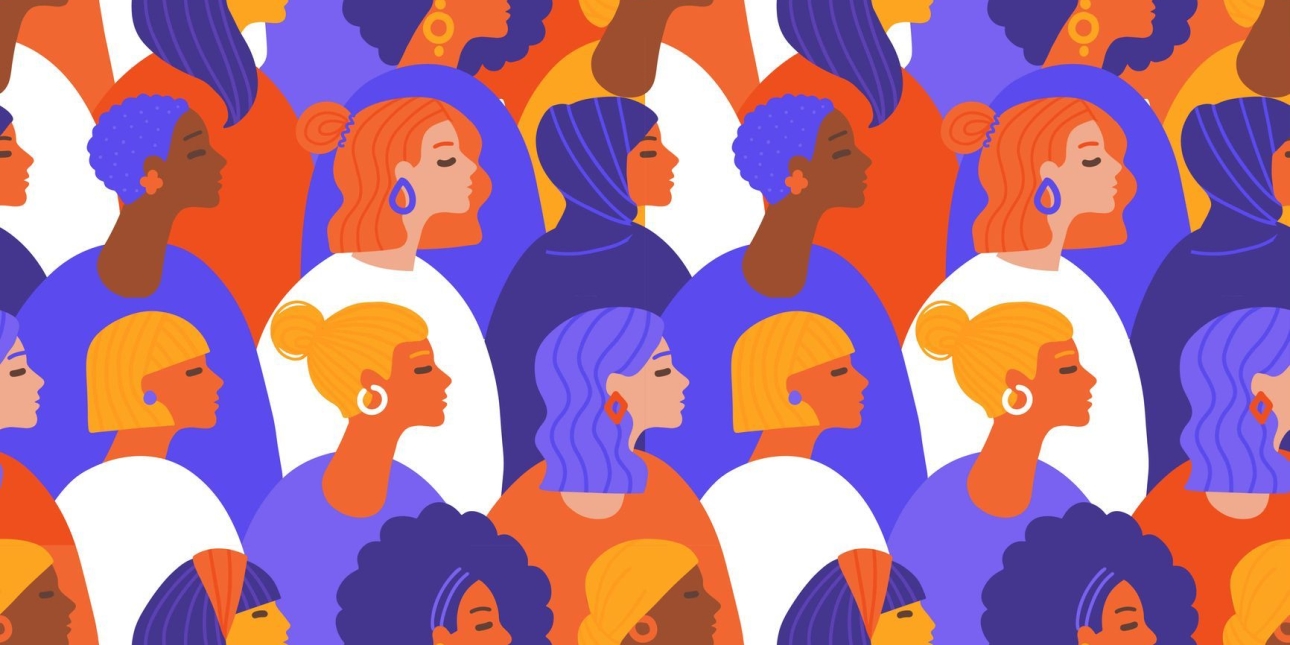Want to embrace equity? Stop silencing women
Business and society have a responsibility towards women. No excuses.
The theme for this year’s International Women’s Day is #EmbraceEquity. Equity, by definition, “means each individual or group of people is given the same resources or opportunities. Equity recognises that each person has different circumstances and allocates the exact resources and opportunities needed to reach an equal outcome.” But how do we know what each individual’s circumstances are? We must hear – and to really listen to – their personal stories and experiences but for so long women have been silenced.
In her new book, Warrior Queens and Quiet Revolutionaries: How Women (Also) Built the World, author Kate Mosse celebrates some incredible women history has passed over, from the biochemist Gerty Cori and the suffragette Rosina Sky to the Buddhist nun Ani Pachen, who led a force of some 600 fighters against the Chinese invasion of Buddhist Tibet in 1958.
As evidenced by Mosse’s book, women’s achievements have been downplayed for centuries. In science, it’s called the Matilda Effect, named after the US suffragist and abolitionist Matilda Joslyn Gage who wrote about the deliberate suppression of the work of female scientists – as well as the crediting of their work to men in the same field.
And it’s a fact that women’s voices are still silenced today. As revealed by a recent Harvard study, male students tend to speak more than female students, particularly in the presence of male instructors, which may be due to concerns about credibility and backlash.
Women of colour often face even greater challenges.
BBC Breakfast’s Naga Munchetty was effectively silenced in July 2019, for comments about former US president Donald Trump’s tweets. While Munchetty was censured by the corporation for breaching impartiality guidelines, her white, male co-host, Dan Walker, was not investigated. It was later revealed that the original complaint that led to her being reprimanded was also about him. The BBC’s director general then stepped in and overturned the decision against Munchetty.
In 2017, model Munroe Bergdorf was fired by L’Oreal for comments deemed to be at odds with the company’s values – and faced a terrifying backlash on social media.
Three years later, a Stylist magazine piece spoke anonymously to several women who work in publishing, one of whom – a journalist – spoke about feeling ‘less than’ and unable to bring their whole self to work, due to racist treatment from a white male superior. (Her complaints to HR with evidence, were ignored.) Another, who worked for a publishing house, felt there was an element of tokenism in her employment and spoke of her fear of being labelled the ‘brown girl who only ever talks about diversity’. No wonder then that a 2019 survey from the Bookseller revealed that "55% of BAME [I would prefer underrepresented] employees felt publishing was not open to change and improvement for inclusivity”.
Generally, women do speak up less than men – regardless of their position of power. A high-powered job hardly insures against violence or domestic abuse. As Cheryl Giovannoni, Chief Executive of The Girls’ Day School Trust told the BBC this year, following the death of the female head of Epson College, Emma Pattison, reportedly at the hands of her husband: “It doesn’t matter how successful or accomplished or brilliant you are, you are only as safe as your male partner allows you to be.”
Silenced, disbelieved, blamed and punished: women are taking the law into their own hands. Helena Kennedy KC, for one, has spent her career attempting to reform a legal system that has failed to understand the reality of women’s lives. In her Ted Talk, The Law is Male, she puts the law on trial for failing to deliver justice for women. And it was ever thus: the Court of Appeal’s Bebb v The Law Society ruling in 1919 upheld the Law Society’s decision that women were not ‘persons’ within the meaning of the Solicitors Act of 1843.
Despite it all, women have persevered, worked out of the home and been responsible for some amazing achievements. Despite limited opportunities and significantly unequal pay, women in the Victorian-era worked in textiles and clothing factories, domestic service, and small industries such as nail making, matchstick making, and shoe stitching,
The story was different for upper and middle-class women at that time, who did not work and, if they did, were expected to stop working after getting married. The situation may have improved during wartime, when women were recruited into either voluntary or paid work – but the change was short-lived: the interwar period saw a significant regression for women in work, and many returned to their domestic roles.
Similarly, in our post-pandemic world, many fear women’s rights to equality have been held back – or even partly reversed by lockdowns that returned women to the home and the domestic sphere. As IWD stresses, women don’t just want equality, but also equity. Business and society have a responsibility towards women. No excuses.
But at least people are listening to female authors like Kate Mosse, whose name, at least, is recognisable – unlike her great-grandmother, Lily Watson, a well-known novelist in her day but now all but absent from the records. More than 1,000 women have their stories told in Mosse’s book – a start, if nothing else. Genuine equity will only result from listening to the stories of everyone who has contributed or is contributing to our world today. Our daughters are finding their voices, and hopefully for 50.5% of the population, the future is starting to look brighter. So much brighter that I hope that one day we will have all embraced equity and that IWD will disappear from our calendars.
Jane Austin is the founder of communications company Persuasion.
%20BronacMcNeill_LR-20178.jpg/Jane_Austin_24May2022_(C)%20BronacMcNeill_LR-20178__190x320.jpg)
#EmbraceEquity #IWD2023 #GenderEquality
.gif)
